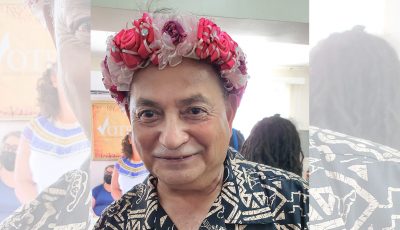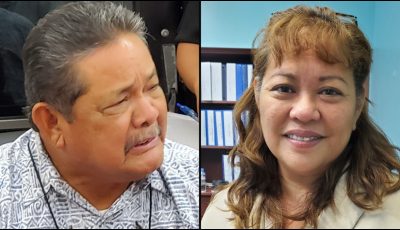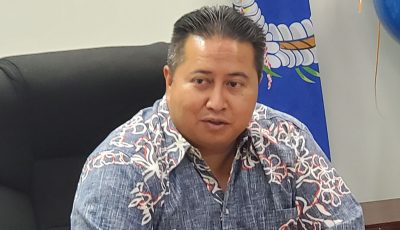High court hears oral arguments in Torres’ appeal in JGO suit
The CNMI Supreme Court heard Thursday last week oral arguments for and against the appeal filed by Gov. Ralph DLG Torres seeking a review of the Superior Court’s recent order to dismiss the governor’s suit against the House of Representatives’ Judiciary and Governmental Operations Committee.
Supreme Court Justices pro tem Arthur Barcinas, Philip Carbullido, and Robert J. Torres heard the oral arguments made by parties involved in their position regarding the appeal filed by Torres against Superior Court judge pro tempore Timothy Bellas’ decision dismissing the governor’s case against the JGO.
After hearing the arguments, the Supreme court took the matter under advisement, saying it will issue a decision on it.
Back in May, Torres’ counsel, Gilbert Birnbrich, filed a notice of appeal with the CNMI Supreme Court just a day after Bellas issued his order, which supported the JGO’s motion to have Torres’ case dismissed.
According to Birnbrich’s argument in support of a reversal of Bellas’ order, the order “ruins” the checks and balance system within the three branches of government by giving the Legislature limitless power.
“The Supreme Court must restore the balance of power between the two political branches by reversing the judgment of the Superior Court. This case is about whether a legislature is to be allowed nearly limitless power to harass and encumber the chief officer of a co-equal branch of government. In our system of divided government, the two political branches, legislative and executive, are often in the hands of opposing political parties,” he said.
Birnbrich further argued that if the courts cannot exercise meaningful oversight when a legislative committee takes the extraordinary step of compelling the governor to testify, a legislature in the hands of one party can and will use its subpoena power to mete out political punishment to a chief executive from the opposing party.
“Such a result risks rupturing the separation of powers irrevocably. Such a committee could regularly and repeatedly haul a governor in to testify about any conceivable subject upon which legislation could be had; and, since the Legislature’s lawmaking power ‘extend[s] to all rightful subjects of legislation,’ the governor could be commanded by any legislative committee at any time to be interrogated about virtually anything. Needless to say, this would hamstring his ability to govern and would effectively make the Executive Branch subservient to the Legislative Branch,” Birnbrich said.
Ultimately, the Superior Court’s decision created a blanket legislative immunity, and effective legislative supremacy, according to Torres’ lawyer.
“Courts that have considered executive challenges to legislative subpoenas have therefore always been careful to balance the constitutional interests of the two branches—until now. The Superior Court’s one-sided analysis failed to take into consideration any of the countervailing interests of the Executive Branch, or to hold the Legislature to any higher showing of necessity when it commands the chief executive to testify before it than when it subpoenas sales receipts from a grocery store. The Superior Court set up a ‘straw man of blanket’ executive immunity—a claim the governor never asserted—and knocked it down, thereby excusing itself from considering the unique separation of powers problems the subpoena posed,” he said.
Meanwhile, the JGO argues that the Superior Court properly found the JGO to be legally entitled to the cloak of legislative immunity, not necessarily for the sake of protecting the legislators themselves, but also to safeguard and protect the Legislature’s ability to perform legitimate legislative actions, and to be a meaningful check and balance on the Executive Branch.
“This finding was wholly consistent with the doctrine of separation of powers, where the Executive, the Legislative, and the Judiciary are all co-equal branches, and not in derogation of it,” the JGO argued.



























